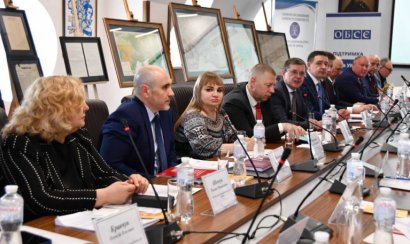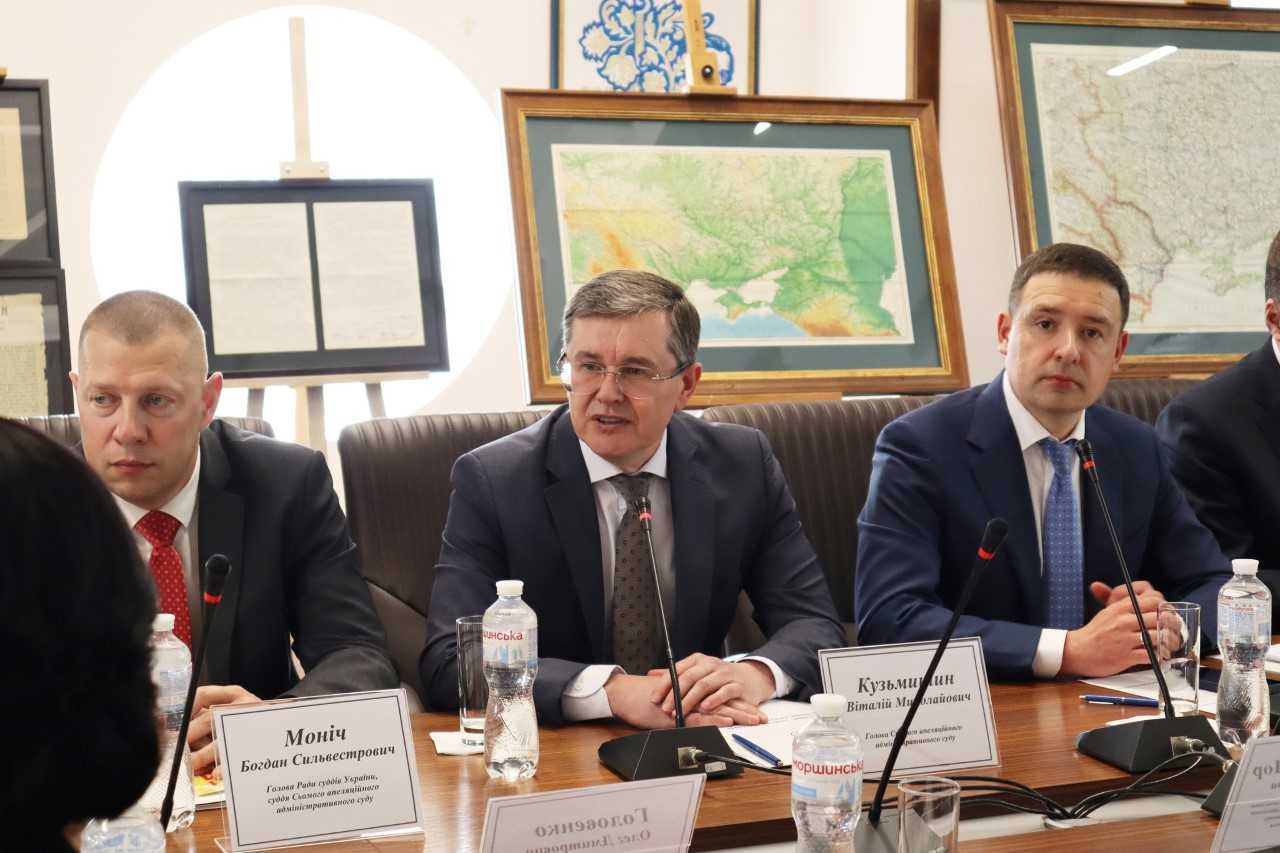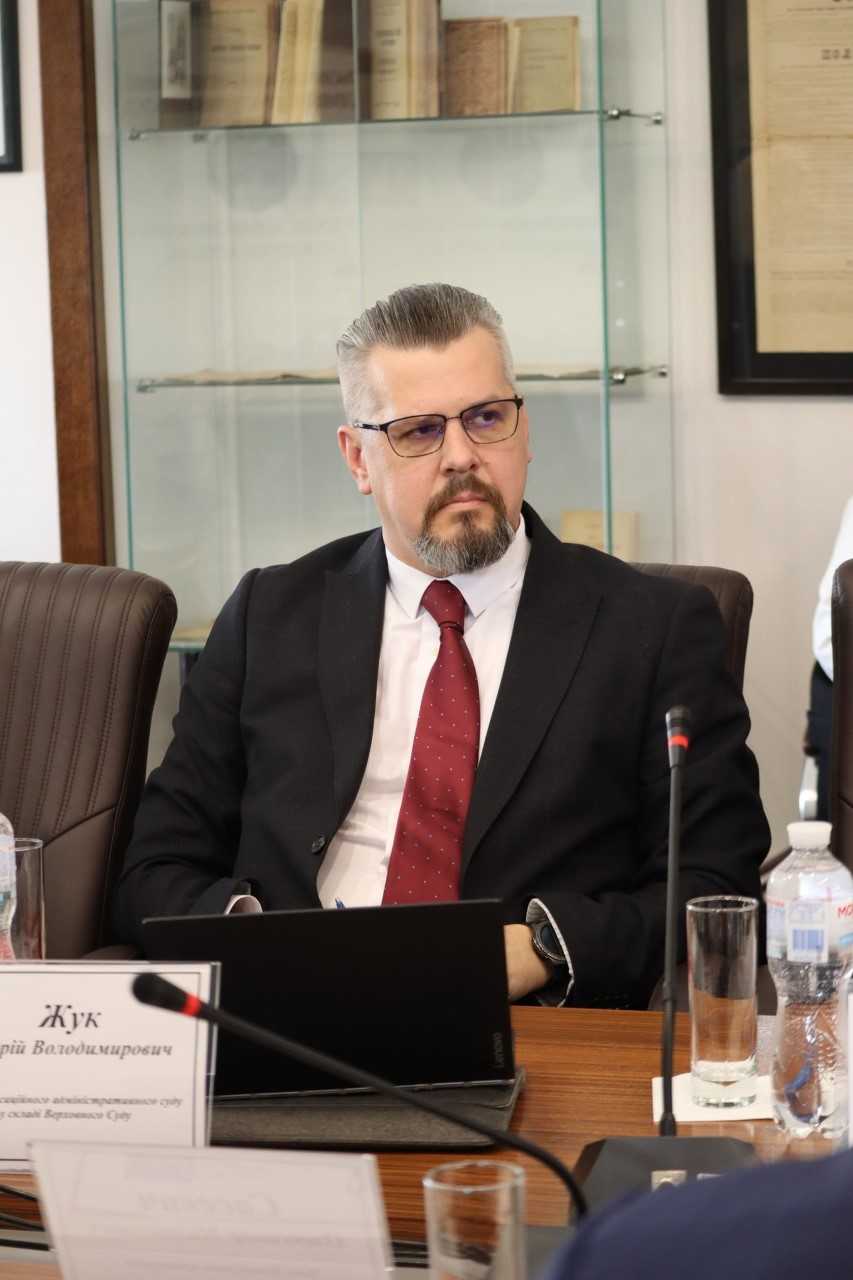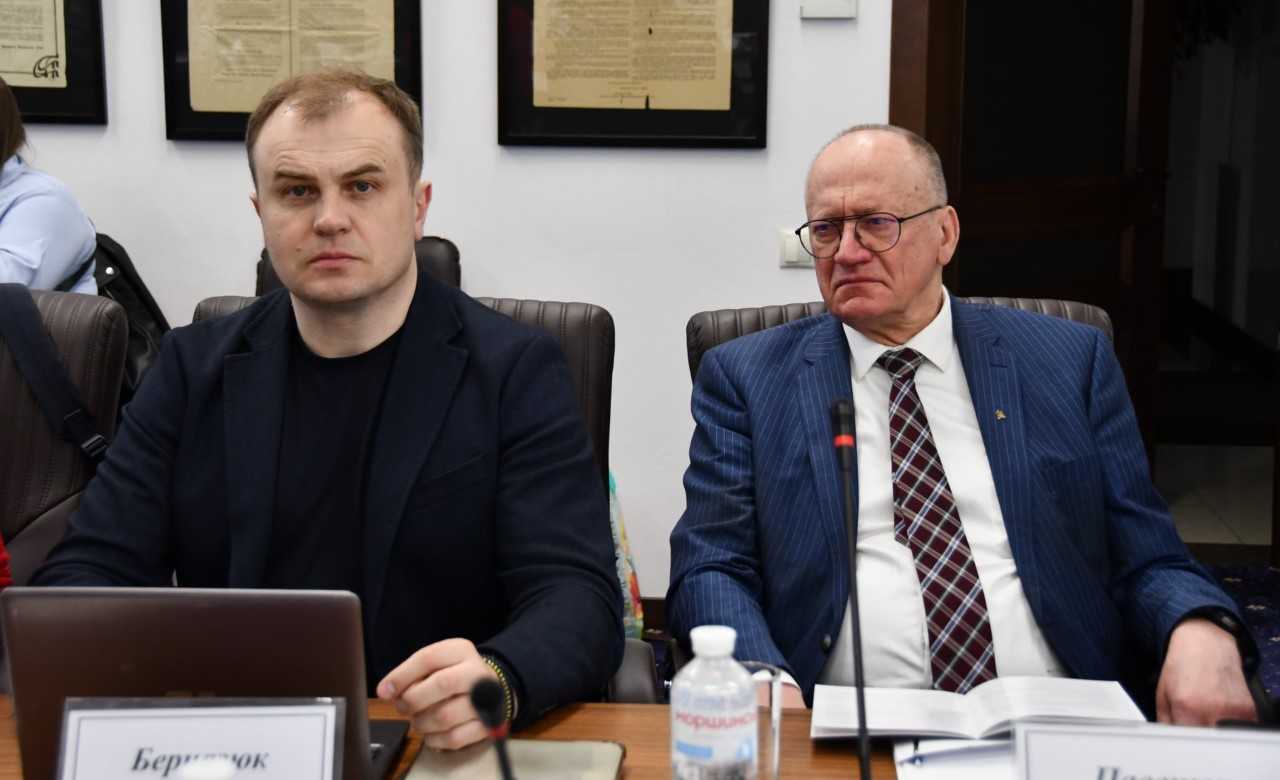Contact center of the Ukrainian Judiciary 044 207-35-46

Supreme Court judges of the Administrative Cassation Court Yan Bernaziuk, Iryna Zheltobriukh, Andrii Zhuk, Supreme Court judges of the Commercial Cassation Court Yehor Krasnov and Tetiana Malashenkova took part in a meeting of the working group of the Council of Judges of Ukraine on the preparation of the Commentary to the Code of Judicial Ethics, which was approved by the XX Regular Congress of Judges of Ukraine in September 2024.
Yehor Krasnov, who serves as the Chairman of the COJ Committee on Ethics, Prevention of Corruption and Settlement of Conflicts of Interest and is also the Head of the working group, moderated and coordinated the discussion.
During the meeting, the working group discussed the proposals to the Commentary on an article-by-article basis. The members of the working group agreed on the technical aspects necessary to ensure the integrity of the Commentary and its presentation as an agreed position of the Council of Judges of Ukraine.

The mini-groups responsible for drafting commentary on specific articles of the Code of Judicial Ethics reviewed conceptual approaches to the definitions contained in the Code. This is due to the fact that many of these definitions are cross-cutting and apply to multiple articles, which highlights the need to harmonize the terminology used in the preparation of the Commentary.
Yehor Krasnov also drew attention to the need for an impartial and unbiased approach to the evaluation of comments prepared on the articles of the Code of Judicial Ethics. He emphasised that an objective analysis of all developments is a prerequisite for achieving a coherent and high-quality result.
The members of the working group agreed that the Commentary to the Code of Judicial Ethics should be accompanied by examples of compliance/non-compliance with the Code, based on examples from international practice, as well as the practice of the ECHR, the Supreme Court, the High Council of Justice, the High Qualification Commission of Judges of Ukraine and the Council of Judges of Ukraine on the settlement of conflicts of interest.

Andrii Zhuk, as the coordinator of the mini-group on the preparation of the commentary to Article 1 of the Code of Judicial Ethics, presented the subgroup's work. He emphasised that this article, along with the preamble to the Code, is crucial for the entire document, and therefore it would be advisable to interpret such concepts as the judiciary, the rule of law, the independence of the judiciary, the authority of the judiciary and justice in the commentary.
The judge also noted that joint work is underway to harmonise the proposals of the commentary to Article 1 with the developments on the commentary to other articles of the Code of Judicial Ethics.

Speaking about his vision of the commentary to Art. 16 of the Code of Judicial Ethics, Yan Bernaziuk stressed the need for a clear distinction between the permissible use of artificial intelligence (AI) technologies in judicial work and the inadmissible delegation of judicial powers. The focus is on protecting the independence and impartiality of a judge and preserving his or her exclusive competence in evaluating evidence and making decisions. The commented article, according to the speaker, performs a preventive function, serving as an ethical barrier to the use of AI in a way that may undermine the judge's internal conviction or trust in justice. Particularly noteworthy are the author's criteria for ethical self-assessment by a judge before using such technologies.

The speaker also emphasised that Article 16 creates a new paradigm - the digital ethics of a judge, which requires not only technological awareness, but also a conscientious, responsible attitude to the use of AI as an auxiliary tool.
The event was held within the framework of the OSCE Support Programme for Ukraine.
Photo courtesy of the organisers.